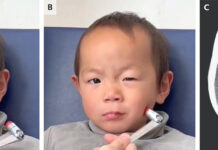
Mal de Debarquement syndrome, undiagnosed in patient for over 18 months
Mal de Debarquement syndrome (MdDS) is a rare neurological disorder seen in women, more commonly in the fourth decade of their life. It manifests with a constant sensation of swaying or motion after a lengthy trip on a plane or ship. The symptoms subside when the patient is subjected to passive motion, for example, driving a car. This article describes the case of a 47-year-old female with a feeling of imbalance after a four-week cruise which would temporarily subside during a car drive or bicycle ride.
The condition, however, is not well-known and under reported. The patient presented to the neurology clinic with a complaint of a feeling of imbalance with a history of 4 months. Her symptoms began, 18 months ago, three and a half weeks after she returned from a cruise ship. She told the doctors that it felt like a constant feeling of motion which even persisted while she would be lying down.
The symptoms subsided when temporarily when she drove a car or rode a bicycle.
Even though the symptoms subsided temporarily after driving a car or riding a bike, they would return as soon as she would get out of the car or off the bicycle. Her medical history revealed vertigo 3 years ago which subsided with positional exercise. There were no signs of headaches, falls, tinnitus, vomiting or nausea.
The patient had previously been to numerous physicians including an otorhinolaryngologist who suggested vestibular exercises. But, nothing seemed to be of any help. Her neurologist started her on clonazepam which the patient discontinues herself after a week because it wasn’t helping her either.
Physical examination including a complete neurological examination did not show any significant findings. Doctors further advised a magnetic resonance imaging (MRI) of the brain, audiogram, positional testing, oculomotor testing and video-nystagmography. Findings of all the tests were normal.
Based on the patient’s prior laboratory investigations, history and literature review, the patient was given a provisional diagnosis of Mal de Débarquement syndrome. Doctors assured the patient that her symptoms would spontaneously resolve in a year.
References
Mal de Debarquement Syndrome: A Case Report https://www.ncbi.nlm.nih.gov/pmc/articles/PMC6221536/



